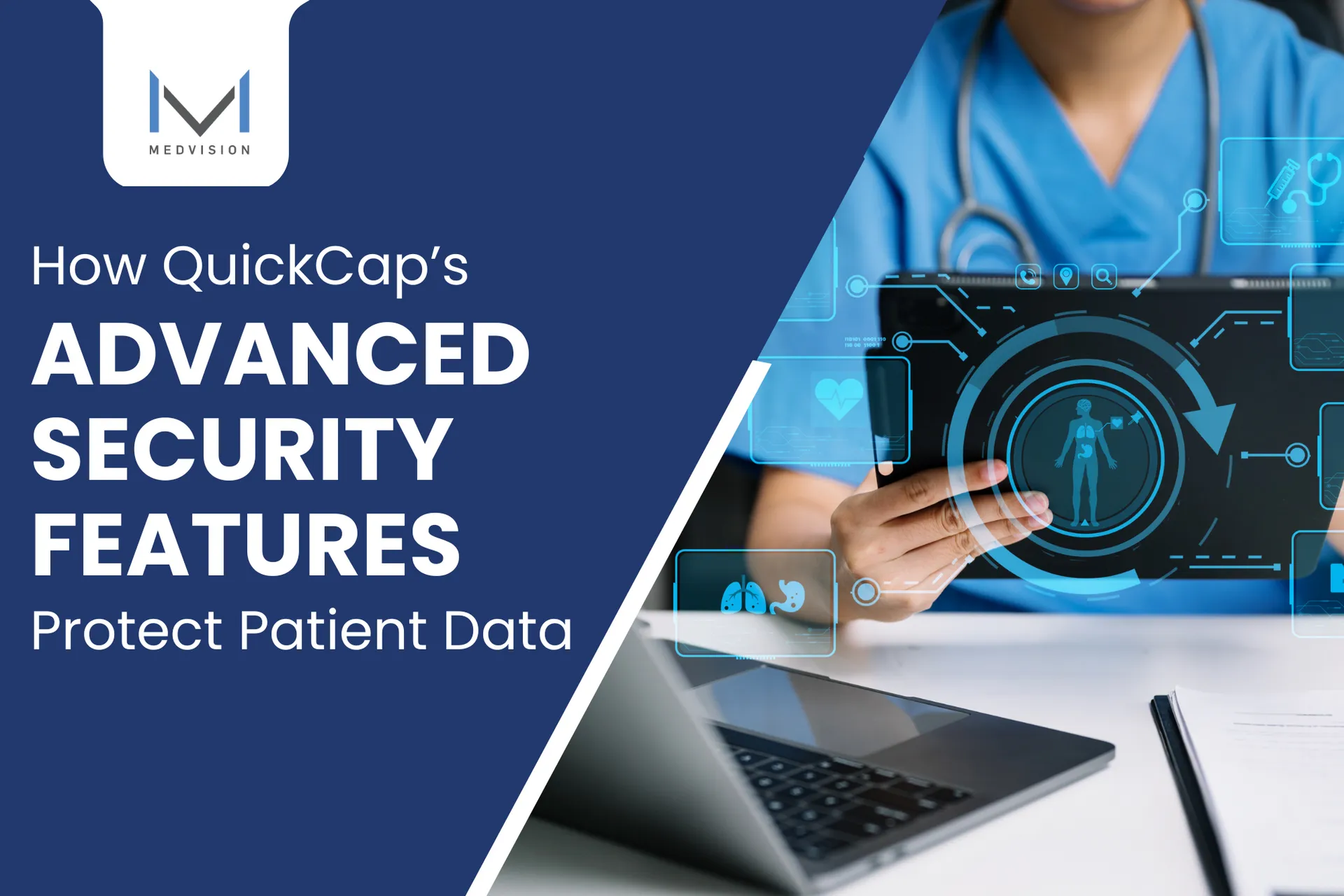Navigating Regulatory Challenges: How IPAs Stay Compliant

Independent Physician Associations (IPAs) enable independent physicians to collaborate, share resources, and provide coordinated, high-quality patient care, highlighting the vital role they play in the U.S. healthcare system. However, constantly evolving regulatory landscapes present significant challenges that detract from their core mission.
In an era where healthcare involves navigating a complex web of rules and regulations, how then can the IPAs ensure their organizations' continued success and sustainability?
To achieve this, IPAs must carefully balance operational efficiency, financial viability, and regulatory compliance. By adhering to the Stark Law and Anti-Kickback Statute, maintaining compliance with data privacy regulations, and meeting value-based care requirements, they can ensure the smooth functioning and success of their associations.
As a leading value-based healthcare administration software,
MedVision's QuickCap is designed to help IPAs and other healthcare organizations navigate regulatory challenges. We aim to empower IPAs to focus on delivering exceptional, cost-effective care while staying firmly within the law.
Unlock the Secret to IPA Compliance Success
Understanding IPAs
Independent Physician Associations are networks of independent healthcare providers who collaborate to enhance patient care and streamline operations. These associations allow smaller practices to retain their independence while enjoying the benefits of collective bargaining, shared resources, and coordinated care.
Key functions within an IPA include:
- Care Coordination: Facilitating seamless patient care transitions and treatment continuity.
- Contract Management: Negotiating contracts with payers and healthcare organizations.
- Administrative Support: Providing centralized services such as billing and compliance oversight.
- Quality Improvement: Enhancing clinical outcomes and patient satisfaction across member practices.
This functional approach allows IPAs to deliver cohesive, high-quality care while navigating healthcare complexities effectively.
Key Regulatory Challenges for IPAs
While the structure of an IPA supports effective healthcare delivery, staying compliant with various regulatory frameworks is crucial for their continued success. Here are some of the regulations and laws that IPAs must adhere to:
Health Insurance Portability and Accountability Act (HIPAA)
HIPAA is a federal law that sets national standards to safeguard individuals' medical records and personal health information (PHI). This serves as a challenge to IPAs due to:
- Robust security protocols that must be established to safeguard patient information.
- Requiring IPAs to implement administrative, physical, and technical safeguards to ensure the confidentiality of ePHI.
Stark Law
The Stark Law, also known as the Physician Self-Referral Law, prohibits physicians from referring patients for certain healthcare services when there is a financial relationship. This regulation serves as a challenge to IPAs because it:
- Requires scrutiny of financial relationships between physicians and entities to avoid prohibited referrals.
- Necessitates the structuring of financial arrangements to comply with the law.
- Monitores and audits continuously to prevent inadvertent violations.
Anti-Kickback Statute (AKS)
The Anti-Kickback Statute prevents “remunerations” for patient referrals, with a few exceptions called “safe harbors.” This regulation serves as a challenge to IPAs because it:
- Prohibits specific financial arrangements that could be seen as inducements for referrals.
- Entails IPAs to structure contracts and financial relationships to avoid violations carefully.
- Needs ongoing compliance training and monitoring to prevent breaches.
Medicare Access and CHIP Reauthorization Act (MACRA)
MACRA ties physician payments to quality care metrics. This serves as a challenge to IPAs because it:
- Requires IPAs to stay updated with evolving quality and performance metrics.
- Needs continuous monitoring and reporting to comply with quality payment programs.
- Demands adaptation to changing standards and requirements to ensure ongoing compliance.
State-Specific Regulations
These enforce additional compliance requirements at the state level. They serve as a challenge to IPAs because:
- Each state may have rules that IPAs must follow.
- They require tailored approaches to meet specific state requirements.
- They call for constant vigilance to stay abreast of state regulatory changes and ensure compliance.
By understanding and addressing these regulatory challenges, IPAs can continue to provide coordinated care to their patients while minimizing legal and financial risks.
Strategies for Compliance
IPAs must also implement practical strategies to ensure compliance with regulatory requirements. Here are some effective strategies that IPAs use:
- Provide ongoing training and education for staff on regulatory changes and compliance best practices.
- Conduct regular internal audits to identify and address compliance issues before they become problematic.
- Employ or consult with compliance officers who specialize in healthcare regulations.
- Engage legal experts to provide guidance on complex regulatory issues and to review contracts and financial arrangements.
- Develop and maintain clear standard operating procedures that outline compliance processes and responsibilities.
- Keep detailed records of compliance efforts, including training sessions, audit results, and corrective actions.
- Encourage collaboration between different departments to ensure a unified approach to compliance.
- Maintain open lines of communication with all stakeholders to address compliance concerns promptly.
By implementing these strategies, IPAs can effectively manage their compliance efforts, minimize risks, and focus on delivering high-quality care to their patients.
The Role of Technology in Compliance
Effective compliance management in IPAs increasingly relies on using technology to streamline processes and enhance efficiency. They can leverage a variety of technological tools and platforms to improve their compliance efforts, including:
- Compliance Management Software: Specialized software to track regulatory requirements, manage policies, and generate compliance reports
- Electronic Health Records (EHRs): Configured to ensure HIPAA compliance and secure patient data management
- Telehealth Solutions: Platforms that comply with privacy regulations while facilitating remote patient care
- Data Encryption and Security Tools: Ensures protection of sensitive patient information as per HIPAA requirements
- Audit Trail Systems: Tracks and logs all activities for compliance audits and investigations
By embracing technology-driven compliance solutions, IPAs can enjoy a range of benefits, including:
- Reducing administrative burden and allowing focus on efficient patient care
- Minimizing human error in compliance documentation and reporting
- Providing proactive alerts and monitoring to address compliance issues promptly
- Streamlining processes, reducing overhead costs associated with manual compliance efforts
- Facilitating seamless communication and collaboration among IPA members and stakeholders
By embracing technology-driven solutions, IPAs can strengthen compliance practices, ensure adherence to regulatory standards, and optimize operational efficiency.
Securing Compliance with QuickCap

Given the complexity of the healthcare industry, streamlining operations without compromising time and resources is crucial. At MedVision, we understand the challenges IPAs face and are committed to delivering practical solutions that prioritize efficiency and success.
With over two decades of experience, MedVision introduces QuickCap, our innovative platform with a
value-based care model. Quickap is designed to accelerate claims adjudication, improve care coordination, and minimize administrative overhead with features like secure data management and predictive analytics.
QuickCap benefits include:
- Automating tasks to keep your IPA compliant with current regulations.
- Simplifying workflows and reducing errors with an intuitive interface.
- Utilizing advanced analytics for better care delivery.
Don't let regulatory challenges hinder your progress. MedVision supports your journey toward operational excellence, empowering you to focus on patient care while confidently navigating complexities. Upgrade to QuickCap today for a comprehensive healthcare administration solution.
Simplify Compliance and Enhance Efficiency
Recently published articles
Keep in touch
Subscribe to get the latest update
Trending topics
Share your insights on social media
Upcoming events and company news















